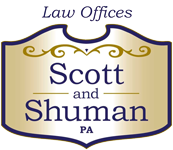Property Owner's Associations
Retaining the services of an attorney is important for every homeowners or condominium association. The HOA governing documents, as well as federal, state, and local laws, dictate many aspects of the community’s management. The association must follow these stipulations. Having a good attorney who specializes in community associations can assist in ensuring compliance and, in turn, preventing lawsuits. HOA attorneys can also aid in everything from amending CC&Rs to collections, as well as provide legal representation should the HOA need it.
Our attorneys have vast experience in all aspects of Property Association Law including the following:
1. Interpret Governing Documents and Laws
As legal corporations, community associations are bound by their governing documents and federal, state, and local laws. HOA governing documents may be difficult to understand. But we can assist with more difficult terms as well as assisting in interpretation.
2. Amend Governing Documents
We can also help with making changes to the governing documents to modify everything from architectural guidelines to increase the number of board members. Amending the HOA governing documents is no small act. The process can take some time and a great deal of work.
When the HOA board chooses to amend the governing documents, they should make sure the changes don’t come into conflict with existing stipulations. The alterations should also comply with federal, state, and local laws. Our attorneys can help with that as well as the proper wording of any changes to minimize the risk of liability.
3. Collect Assessments
Unfortunately for many community associations, there are always homeowners who do not pay their assessments. This could stem from a number of reasons — from insufficient income to a downright refusal to do so. Most HOA boards do everything they can to collect delinquent dues, including imposing late fees and even revoking privileges.
We can assist the board in deciding whether or not to take further action, such as filing a lawsuit or placing a lien on the property.
4. Represent the HOA and Its Board
The HOA’s governing documents also list the fiduciary responsibilities of the board of directors. If a board is found to not be upholding these responsibilities or acting neglectfully, homeowners within the association may take legal action. The board of directors would then need legal representation, and in many cases, a lawyer they have already retained will be able to assist.
5. Overall Legal Counsel
Every homeowners association needs legal counsel for a sundry of issues. Scott and Shuman, P.A. can serve as general legal counsel when it comes to management concerns, such as disputes or accusations of discriminatory behavior. If the board is unsure of a course of action they intend to take, one of our attorneys can weigh in with their expert opinion. In the long run, having an attorney by the board’s side will limit the possibility of liability.

